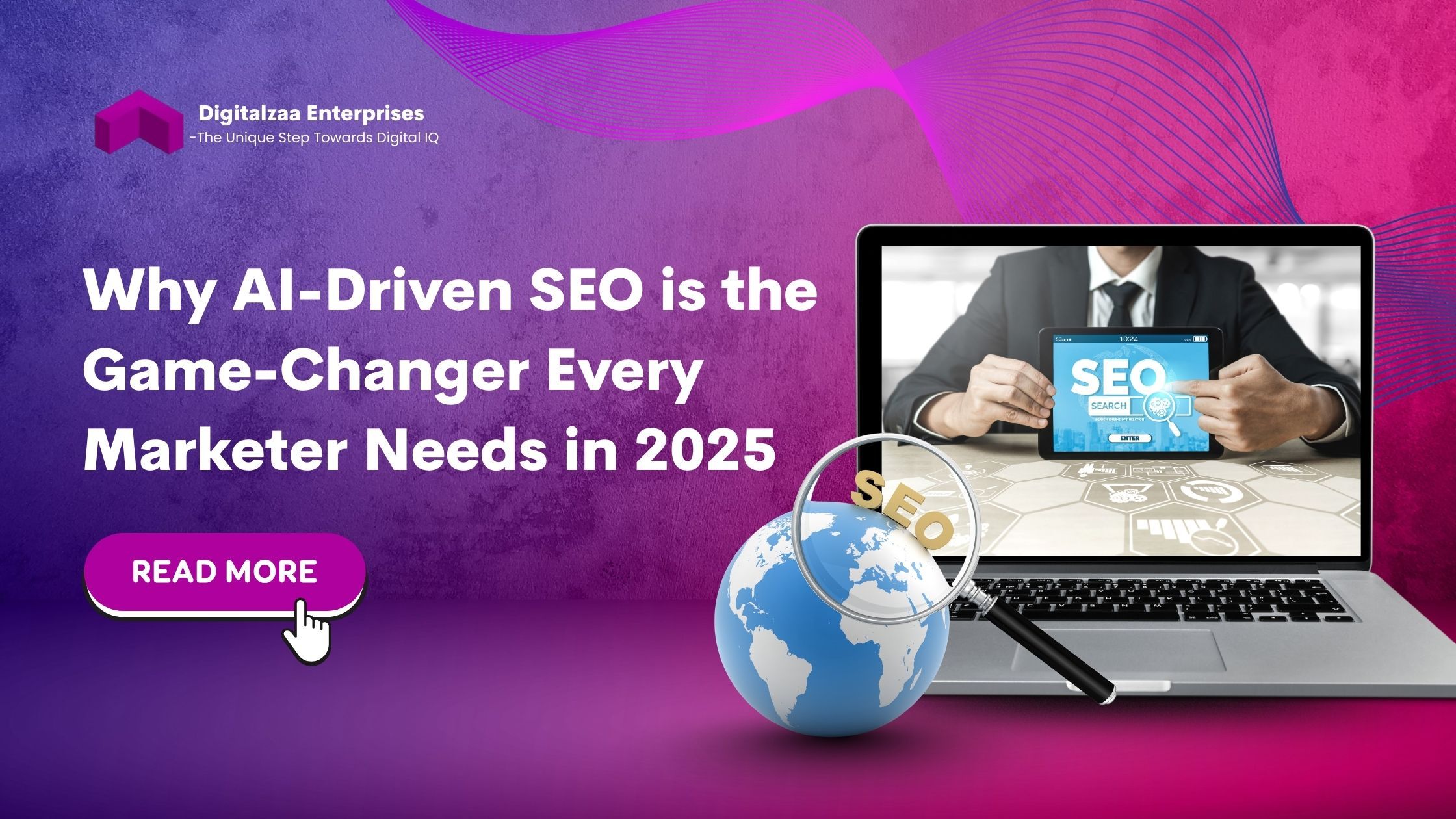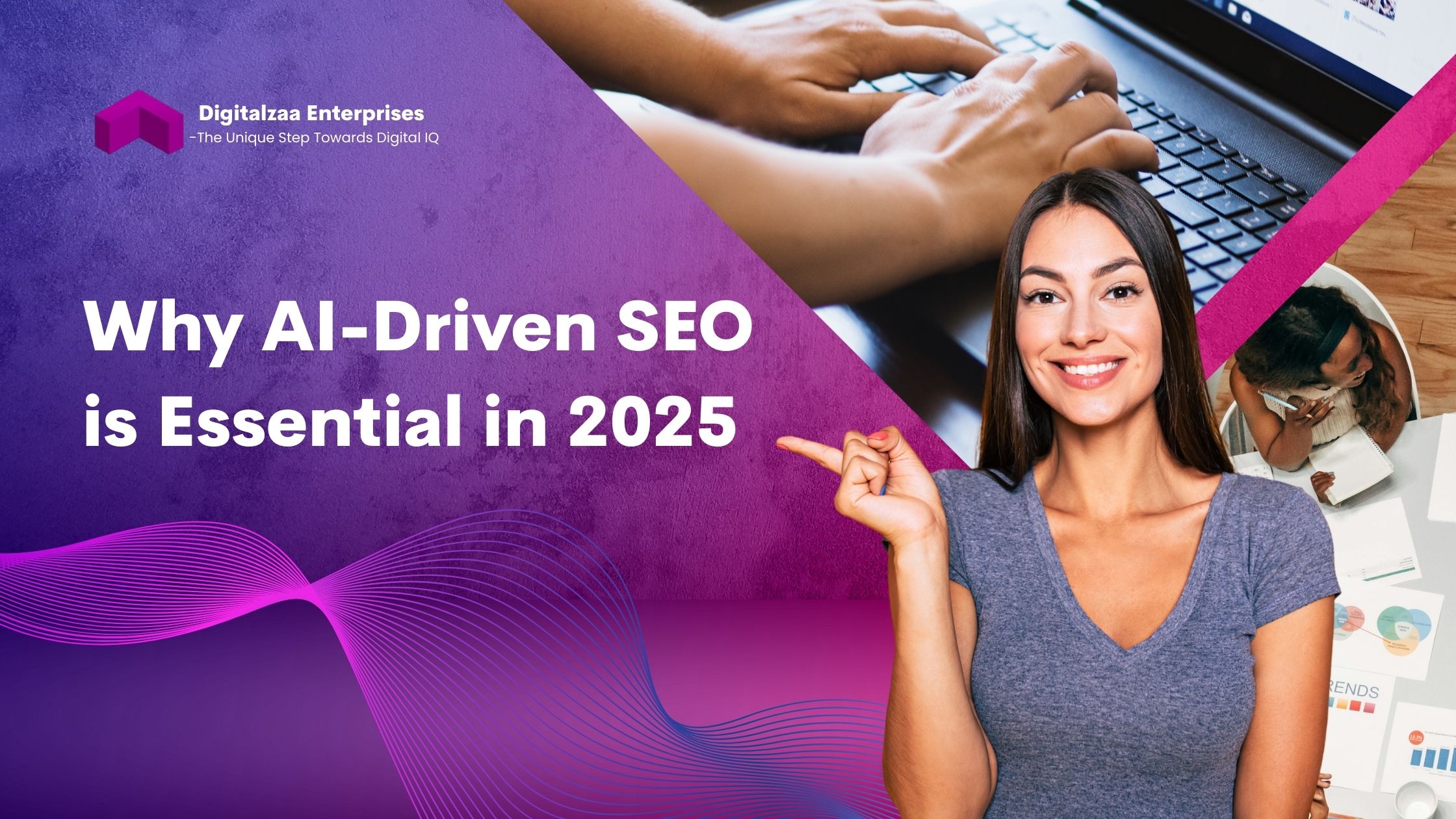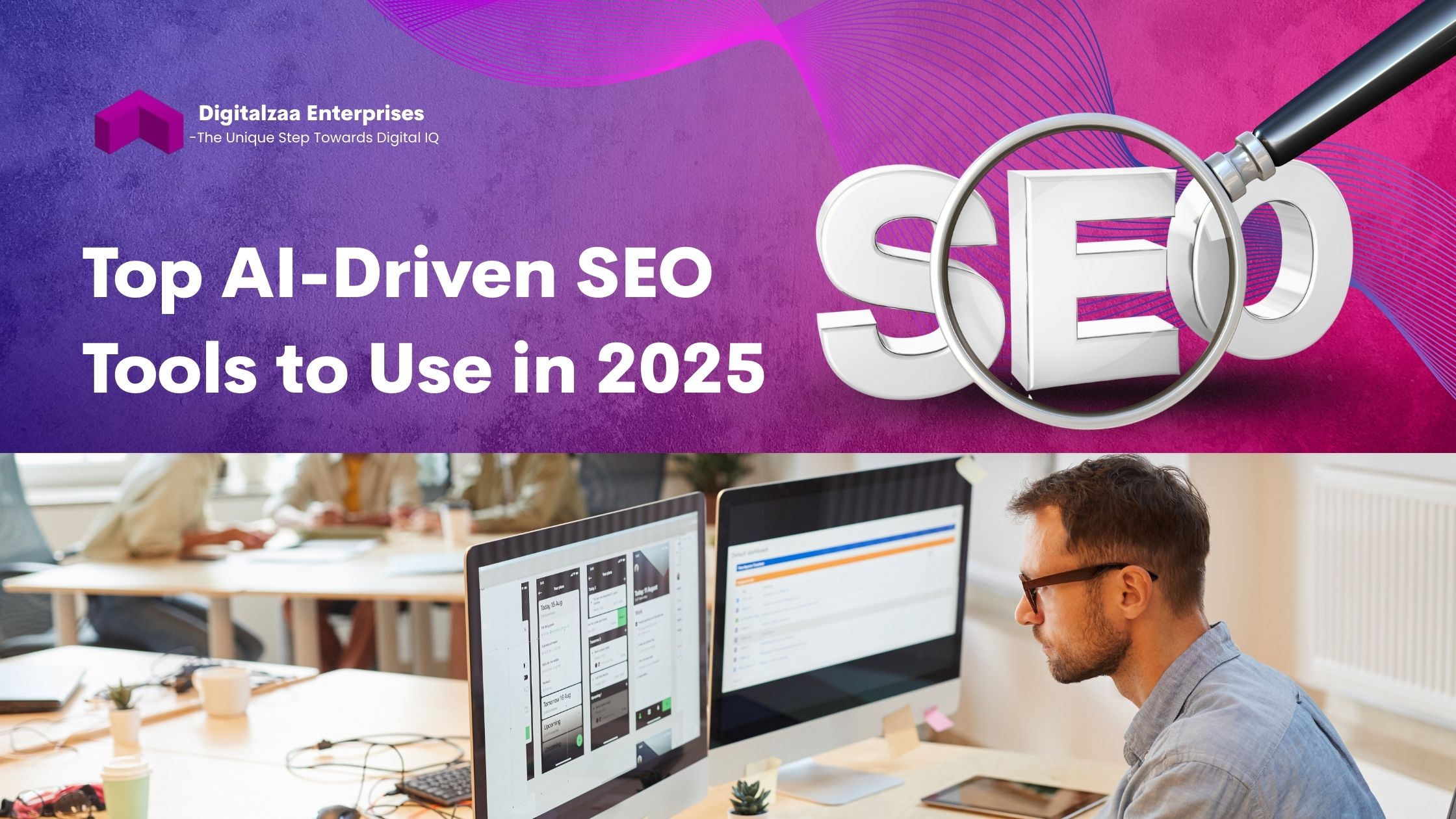Why AI-Driven SEO is the Game-Changer Every Marketer Needs in 2025

In today’s fast-changing digital ecosystem, businesses cannot afford to rely on outdated strategies to rank higher on search engines. As we enter 2025, AI-driven SEO is no longer just a buzzword—it has become the most powerful tool for marketers aiming to dominate online visibility, drive organic traffic, and maximize ROI. Traditional search engine optimization was once about keyword stuffing, backlinking, and content quantity. However, with the evolution of artificial intelligence, the focus has shifted to AI-powered SEO strategies that deliver precision, personalization, and performance.
This blog explores why AI-driven SEO is a game-changer in 2025, its benefits, key applications, tools, and the future it promises for digital marketing.
What is AI-Driven SEO?
AI-driven SEO refers to the integration of artificial intelligence algorithms and tools into search engine optimization practices. Unlike traditional SEO that depends heavily on manual research and guesswork, AI uses machine learning, natural language processing (NLP), and predictive analytics to:
- Understand user intent more accurately
- Generate optimized content at scale
- Automate keyword research and competitor analysis
- Predict ranking opportunities and algorithm shifts
In short, AI transforms SEO from reactive guesswork to a data-driven, proactive strategy that keeps marketers ahead of the curve.
Why AI-Driven SEO is Essential in 2025

Search engines like Google are increasingly relying on AI-based algorithms such as RankBrain, BERT, and MUM to interpret search intent and deliver precise results. To match this sophistication, businesses must adopt AI-driven SEO strategies or risk falling behind. Here are the key reasons why:
- Smarter Keyword Research and Optimization: Gone are the days of manually finding keywords using basic tools. AI can analyze billions of queries in seconds, identify semantic keywords, and predict which ones will rank better. It considers search trends, voice queries, and intent, ensuring businesses capture both long-tail and contextual searches.
- Enhanced Content Creation and Optimization: AI doesn’t just generate content—it improves it. By analyzing top-performing pages, user engagement metrics, and readability factors, AI suggests better headlines, structure, and keywords. This results in SEO-friendly blogs and landing pages that attract readers and satisfy algorithms simultaneously.
- Improved User Experience (UX): Google has made UX a ranking factor with Core Web Vitals. AI-driven SEO tools can monitor website speed, mobile responsiveness, and user navigation patterns, then offer recommendations. A seamless UX means longer dwell time, lower bounce rates, and higher rankings.
- Predictive SEO for Future Rankings: With predictive analytics, AI forecasts keyword trends and algorithm updates. This gives marketers the edge to create content before competitors even recognize new opportunities.
- Scale and Efficiency: AI automates repetitive SEO tasks such as meta description creation, image optimization, and backlink analysis, allowing marketers to focus on creative and strategic efforts.
Key Features of AI-Powered SEO Tools
To understand how AI is revolutionizing SEO, let’s look at the features AI tools bring in 2025:
- Advanced Keyword Intelligence: Semantic keyword analysis, search intent detection, and trend prediction.
- Content Optimization: Real-time content scoring, readability analysis, and AI-generated outlines.
- Competitor Insights: AI monitors competitor websites and uncovers backlink gaps and ranking opportunities.
- Voice Search Optimization: With voice queries dominating, AI tailors content for natural, conversational searches.
- Automated Reporting: AI tools generate actionable SEO insights in easy-to-read reports.
Benefits of AI-Driven SEO in 2025
Businesses adopting AI-driven SEO gain measurable benefits, including:
- Higher Rankings Faster – AI cuts down trial-and-error and delivers precise optimization.
- Better ROI – Efficient targeting means less wasted budget on irrelevant keywords or content.
- Personalization – AI creates personalized experiences, tailoring search results for specific audiences.
- Future-Proof Strategies – AI’s predictive nature ensures businesses adapt to Google updates smoothly.
- Time-Saving Automation – Repetitive tasks get automated, allowing marketers to focus on creativity.
AI-Driven SEO vs Traditional SEO
- Keyword Research
- Traditional SEO: Manual and time-consuming, often limited to exact-match keywords.
- AI-Driven SEO: Automated, predictive, and focused on semantic keywords and intent.
- Content Optimization
- Traditional SEO: Relies on human research and manual tweaks.
- AI-Driven SEO: Uses AI analysis to enhance readability, structure, and keyword density in real time.
- Competitor Analysis
- Traditional SEO: Basic monitoring of backlinks and rankings.
- AI-Driven SEO: Provides real-time, in-depth competitor insights with actionable recommendations.
- Adaptability to Algorithms
- Traditional SEO: Reactive, adjusting only after Google updates.
- AI-Driven SEO: Proactive, using predictive analytics to prepare ahead of algorithm changes.
- Scalability
- Traditional SEO: Limited by human resources and time.
- AI-Driven SEO: Scales effortlessly through automation and intelligent workflows.
Applications of AI-Driven SEO in Marketing
AI-driven SEO is not just theoretical—it has real-world applications across industries:
- E-Commerce: AI personalizes product descriptions, optimizes for long-tail keywords, and improves search visibility for products.
- Blogging & Content Marketing: Writers can use AI tools to generate blog ideas, outli
 nes, and improve readability scores.
nes, and improve readability scores. - Local SEO: AI tools analyze local trends, reviews, and user behaviors to enhance local business visibility.
- Voice & Visual Search: AI optimizes content for voice queries (“near me searches”) and image-based searches.
- Enterprise SEO: Large organizations use AI for managing multi-location SEO strategies at scale.
Top AI-Driven SEO Tools to Use in 2025
- Surfer SEO – For AI-powered content optimization.
- SE Ranking AI – Keyword intelligence and competitor analysis.
- MarketMuse – AI-driven content strategy platform.
- Clearscope – Optimizes readability and semantic keyword usage.
- ChatGPT-based SEO Assistants – For generating blog drafts, FAQs, and snippets.
These tools combine automation with precision to empower marketers in every step of their SEO strategy.
The Role of AI in Voice and Visual SEO
With the rise of smart speakers and visual platforms like Google Lens, SEO in 2025 extends beyond text searches. AI-driven SEO strategies optimize for:
- Voice Search: Long-tail, conversational keywords and local “near me” searches.
- Visual Search: Optimized product images, metadata, and alt tags for image recognition.
Marketers who ignore these will miss out on a huge traffic source.
Challenges of AI-Driven SEO
While AI offers immense potential, it comes with challenges:
- Over-Reliance on Automation: Blindly following AI suggestions may overlook human creativity.
- Cost of AI Tools: Advanced AI-powered SEO tools can be expensive.
- Data Privacy Concerns: AI’s dependency on user data raises compliance issues.
- Learning Curve: Marketers need training to fully leverage AI tools.
However, with proper integration, these challenges are easily manageable.
Future of AI-Driven SEO
Looking ahead, AI in SEO will continue to evolve. By 2030, we can expect:
- Fully automated SEO audits with instant recommendations.
- AI-powered personalized search results for every individual user.
- Deeper integration of AI with AR/VR search experiences.
- SEO strategies built entirely around predictive AI models.
Marketers who embrace AI-driven SEO in 2025 will not just stay relevant but dominate the competition in the long run.
Conclusion
In 2025, AI-driven SEO is not just an option—it’s a necessity for every marketer. By leveraging AI-powered SEO strategies, businesses can gain higher rankings, better engagement, and long-term sustainability in an increasingly competitive digital world.
The shift from manual SEO practices to AI-backed optimization has transformed the way we create, optimize, and scale content. Marketers who adopt this technology today will become the leaders of tomorrow.
If you want your business to stay ahead in 2025, the message is clear: AI-driven SEO is the ultimate game-changer.


